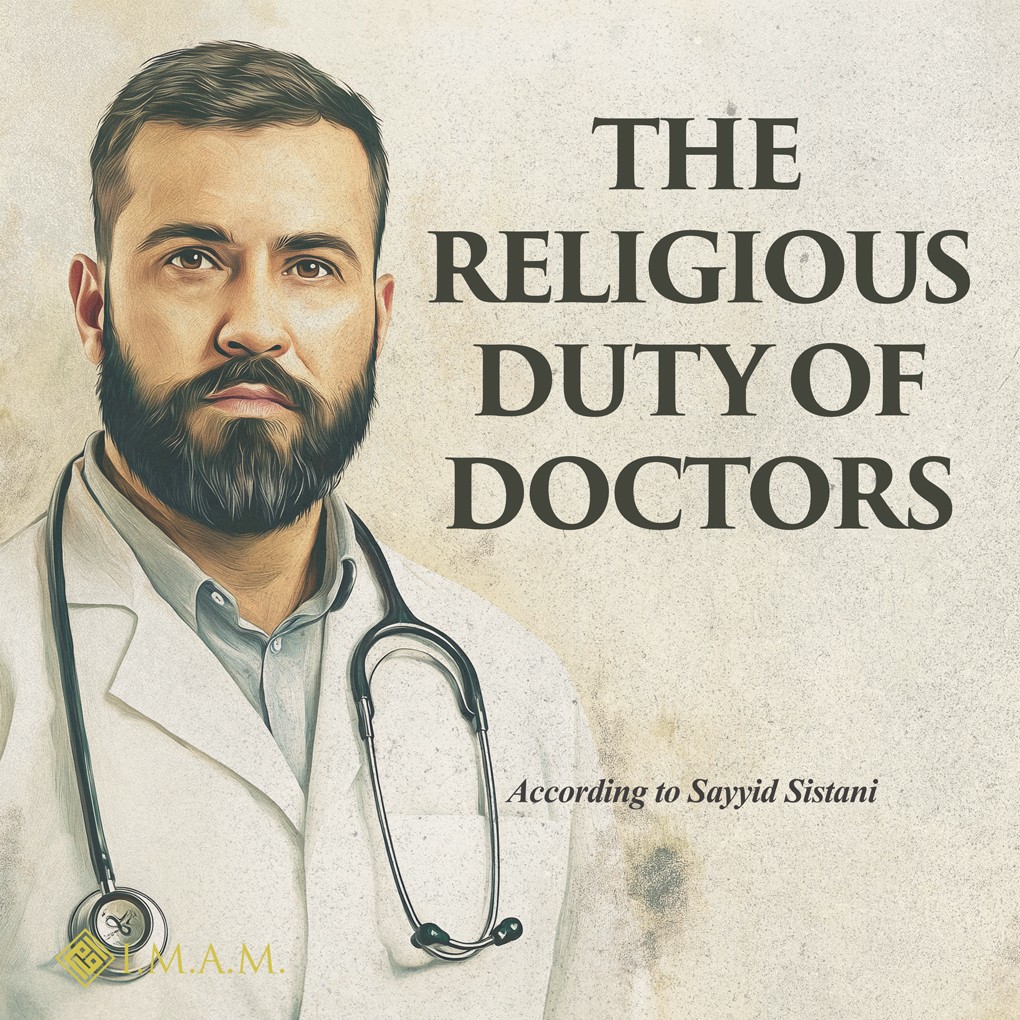The Religious Duty of Doctors

Medical doctors play a vital role in society by preserving and caring for human life. But Islam highlights that their responsibilities go beyond physical healing—there’s a spiritual and ethical duty that they must uphold.
Imam Ali (p) said, “A medical doctor should be careful of his duty to God, give sincere advice, and exert himself” (Bihar al-Anwar, v. 59, p. 74).
This teaching emphasizes that a doctor’s work should be grounded in sincerity, responsibility, and dedication. Their duty is not just about providing medical care, but ensuring that their advice and efforts come from a place of genuine concern for both their patients and their relationship with God.
Sayyid Sistani, in 100 Pearls, further explains that professionals, particularly doctors, should be humble enough to acknowledge their limitations and seek help when necessary. He writes, “[Professionals] should excuse themselves from anything they are incapable of doing or anything they do not know, or they should seek help from others who are more experienced…People should also perform their jobs with passion, motivation, and enthusiasm, and they should not be solely concerned with earning money.[Medical doctors] in particular should be very careful not to make a mistake that results from speaking without knowledge or acting without experience, because it will very quickly end in horrendous consequences. The Prophet (pbuh&hp) once said, ‘God Almighty loves if one of you does a job that they do it with excellence.'”
Doctors are encouraged to work with passion and excellence, not solely for financial gain, but for the sake of providing the best possible care. Mistakes made from ignorance or carelessness in this field can have great consequences, making it even more essential that medical professionals act with both knowledge and integrity.
Prophet Muhammad (pbuh) beautifully summed up the Islamic work ethic when he said, “God Almighty loves if one of you does a job that they do it with excellence.” This applies profoundly to the medical profession, where lives are directly impacted by the quality of care and commitment shown by healthcare providers.
In short, medical doctors in Islam carry the dual responsibility of providing expert care and upholding moral integrity, ensuring their actions align with divine principles.

Leave a Comment:
You must be logged in to post a comment.